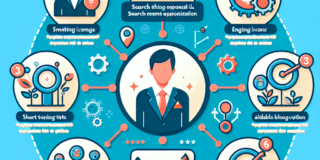
Human resources technology is constantly evolving to meet the needs of the modern workplace. Following the unprecedented disruption that COVID-19 has created in the work environment, many organizations have adapted and implemented new approaches to recruiting and managing their workforce. What was once considered ‘nice to haves’ are now table stakes in the experience economy.
The rise of the remote workforce has resulted in a surge in the use of HR technology. In 2022, HR technology trends will continue to consider the needs of the remote workforce and the changing nature of work. Apart from this, we will also see a rise in the use of AI and machine learning in HR, as well as a focus on employee wellness and mental health. Here are the top HR tech trends to look out for in 2022:

People meeting photo created by rawpixel.com – www.freepik.com
The Continued Rise of the Remote Workforce
The Covid-19 pandemic has accelerated the trend toward remote work. In a recent survey, 35% of respondents declared they could work from home full-time, while 23% said that they would like to do so part-time.
In order to support a remote workforce, organizations will need to invest in HR tools that facilitate communication and collaboration. We will see a rise in the use of chatbots and messaging apps, as well as video conferencing and screen-sharing tools. HR technology will also need to focus on employee productivity and engagement, as well as on supporting managers in leading remote teams.
It also significantly affects the recruitment process and how HR professionals identify and assess talent. The pool of candidates will become more global, and organizations will need to invest in tools that can help them screen and interview candidates remotely.
For example, suppose you look for an SEO professional. In that case, you want someone who not only knows what Google algorithm is and how Google works in theory but also has experience in practicing SEO. As such, you need to be able to assess candidates’ actual skills remotely, rather than just their qualifications on paper.
Increased Adoption of AI and Machine Learning
AI and machine learning are being increasingly used in HR for a variety of tasks, ranging from screening resumes to identifying training and development needs. In 2022, we will see a continued increase in the use of AI and machine learning in HR as organizations look to automate more tasks and improve the efficiency of their HR departments.
We will also see a rise in the use of AI chatbots for employee support. Chatbots can provide workers with answers to common questions, help them resolve problems, and guide them through complex processes. For example, a chatbot could help an employee book a meeting room or submit a leave request.
What’s more, AI can be applied to identify patterns in employee data that may be indicative of problems, such as turnover risk. By using AI to flag potential issues early, organizations can take steps to prevent them from happening.
Focus on Employee Wellness and Mental Health
In recent years, there has been a growing awareness of the importance of employee wellness and mental health. The COVID-19 pandemic has exacerbated mental health issues among workers, with studies showing that people are experiencing increased risks of anxiety, stress, and depression.
As a result, organizations are placing a greater emphasis on employee wellness and mental health. In 2022 and beyond, we can expect these issues to continue to be a focus for HR departments. Organizations will need to research tools and programs that support employee wellbeing, such as Employee Assistance Programs (EAPs), mental health apps, and wellness tracking platforms.
What’s more, employers will need to provide managers with training on how to support employees who are struggling with mental health issues. This will include how to have difficult conversations, signpost employees to appropriate support, and create an open and supportive culture.
Data privacy and security concerns will also need to be addressed, as mental health data is particularly sensitive. Organizations will need to ensure that any tools or programs they implement are compliant with data privacy laws, such as the GDPR.
Inclusive Recruitment and Aligning Talent With Company Values
Organizations are under pressure to ensure that their recruitment processes are inclusive and that their workforce is aligned with their company values. In recent years, we have seen a rise in the use of unconscious bias training designed to help people identify and overcome their biases.
In 2022, we can expect a continued focus on inclusive recruitment. This will involve reviewing job descriptions and personas, so they are free from bias, implementing tools to facilitate a more diverse candidate pool, and evaluating unconscious bias in the recruitment process.
What’s more, organizations will need to ensure that their talent management strategy aligns with their company values. This will involve attracting and retaining talent that shares the organization’s values, as well as identifying and developing talent that has the potential to be a cultural ambassador for the organization. Relevant data is invaluable in this respect, and HR departments will need to make use of data analytics to identify trends and patterns.
Blockchain in HR
Blockchain is a distributed database that allows for secure, transparent, and tamper-proof record-keeping. The technology is already being used in a number of industries, and its applications in HR are beginning to be explored.
In 2022 and beyond, we will probably observe a rise in the use of blockchain in HR, particularly regarding payroll and benefits administration. By using blockchain, organizations can streamline these processes and reduce the risk of errors and fraud.
Moreover, with blockchain, you can securely store employee data, such as qualifications, employment history, and performance reviews. This would give employees more control over their data and help prevent fraud and identity theft.
Conclusion
In 2022, we can expect to see a continued focus on the needs of the remote workforce, as well as a rise in the use of AI and machine learning in HR. Additionally, we will observe a greater emphasis on employee wellness and mental health, as well as on inclusive recruitment and aligning talent with company values.
As the world of work continues to evolve, HR departments will need to be adaptable and innovative in order to meet the needs of the modern workplace. By doing so, organizations can ensure that their HR department is efficient and effective and that their workforce is engaged and productive.
Looking For HR Management System?
Call Pursho @ 0731-6725516
Telegram Group One Must Follow :
For Startups: https://t.me/daily_business_reads





